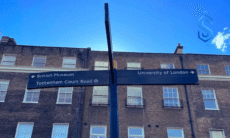Pune: As artificial intelligence (AI) adoption accelerates globally, a new policy paper from the Association of Chartered Certified Accountants (ACCA) and global consultancy EY calls for the adoption of comprehensive AI assessments to ensure safe, reliable, and effective AI deployments.
Titled “AI Assessments: Enhancing Confidence in AI,” the report emphasizes the importance of structured governance, legal compliance, and performance evaluations to enhance trust in AI systems.
The paper explores the critical role AI assessments play in building stakeholder confidence across business, policy, and regulatory landscapes.
Also Read: Finance Roles in GCCs Set to Surge as India Becomes a Global Back-End Powerhouse: ACCA
With AI transforming industries from finance and healthcare to manufacturing and logistics, the report offers timely and practical insights to help organizations navigate the risks and realize the full potential of AI innovation.
Key Types of AI Assessments Identified
The guidance outlines three primary forms of AI assessments that organizations can implement to support responsible AI use:
- Governance Assessments – to evaluate internal oversight and accountability structures.
- Conformity Assessments – to verify adherence to legal, regulatory, and industry standards.
- Performance Assessments – to ensure systems meet defined performance and quality metrics.
These structured evaluations are increasingly being considered by businesses, investors, insurers, and policymakers to mitigate AI-related risks and enhance transparency.
Why AI Assessments Matter Now More Than Ever
The report highlights that effective AI assessments can help businesses deploy systems that are trustworthy, compliant, and aligned with operational goals.
This becomes especially critical as governments introduce evolving AI policy frameworks, such as the recent AI Action Plan from the U.S. administration, which underscores the value of “rigorous evaluations” in regulated sectors.
Also Read: ACCA IIM Nagpur MoU to Empower Students with Global Finance Skills
ACCA and EY point out that poor implementation of AI can lead to legal liabilities, reputational damage, and missed business opportunities—risks that can be mitigated through standardized and consistent assessments.
Strategic Recommendations for Business Leaders and Policymakers
The joint paper provides concrete recommendations:
- For Business Leaders: Voluntary AI assessments can strengthen corporate governance, internal risk controls, and public trust in AI systems.
- For Policymakers: Define AI assessment frameworks with clear objectives, methodologies, and standards that are globally interoperable and business-friendly.
- For Ecosystem Builders: Invest in capacity-building to ensure the availability of professional, cost-effective assessment providers.
Helen Brand, Chief Executive, ACCA, emphasized the importance of public trust: “As AI scales across the economy, the ability to trust what it says is not just important, it’s vital for the public interest. Bridging skills gaps and ensuring trustworthy AI is essential for sustainable business.”
Marie-Laure Delarue, EY Global Vice-Chair, Assurance, said: “AI is at an inflection point, offering immense opportunity and complexity. Rigorous assessments are crucial for ensuring safe adoption. Confidence in AI is key to unlocking its full potential.”
The paper concludes that AI assessments are not just compliance exercises, but foundational to responsible innovation and long-term business success. As AI becomes embedded in core operations, proactive assessment strategies will differentiate resilient, high-trust organizations in an AI-first world.










